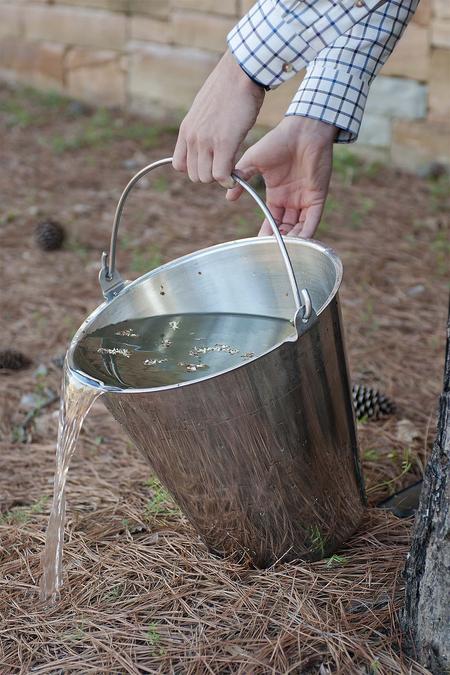Cases of Legionnaires’ Disease Soar in Michigan, With Majority in Metro Detroit
Flooding rains and hot weather — which are also ideal conditions for mosquitoes — are behind the outbreak, state health official says.

Hot weather, flooding rains and reopening of buildings after pandemic restrictions are some reasons for a big spike in Legionnaires’ disease in Michigan, according to state health officials. The flooding rains have also created the perfect breeding ground for mosquitoes this summer.
The Legionnaires’ outbreak is happening in 25 counties across the state but concentrated in Southeast Michigan with over 60% of the 107 infections occurring in Wayne, Oakland and Macomb counties in the first two weeks of July.
Over the same period last summer, only 16 cases were reported.
“Legionella bacteria is found naturally in freshwater lakes and streams. However, it can also be found in the manmade water systems. We’re talking your potable water systems, cooling towers, Whirlpool spas and decorative fountains.” –Lynn Sutfin, Michigan Department of Health and Human Services
Lynn Sutfin, a spokeswoman for the Michigan Department of Health and Human Services, says the bacteria that causes the disease, which is a serious type of pneumonia, is ever-present in nature.
“Legionella bacteria is found naturally in freshwater lakes and streams. However, it can also be found in the manmade water systems. We’re talking your potable water systems, cooling towers, Whirlpool spas and decorative fountains.”
She says the Legionella bacteria grows in neglected and unused HVAC cooling towers, with many of these systems in buildings that were shut down during pandemic restrictions.
“We also know that many buildings are currently reopening after being closed for an extended period of time during the pandemic. So this can also create that environment for that potential growth and amplification of the bacteria.”

Sutfin says standing water after heavy rains by itself won’t infect people with Legionnaires’, but it could be harmful if it becomes aerosolized.
“Transmission occurs when a mist or vapor containing the bacteria is inhaled. You’ve got to have this moving water that is putting that mist or that vapor out there for somebody to inhale. So, it’s not necessarily standing stagnant water that’s going to be the issue.”
This week, the Michigan Department of Health and Human Services issued a warning to hospitals to be on the lookout for the disease.
Those most at-risk of catching the disease are smokers over 50 and people with compromised immune systems.
Symptoms of Legionnaires’ disease include cough, fever, muscle aches and headaches and usually appear within the first 10 days after exposure.
Asian Tiger Mosquito Found in Wayne County

If it seems like mosquitoes are particularly numerous right now, you’re probably right.
Sutfin says flooding rains that hit Metro Detroit twice over the past month and warm temps are perfect conditions for the bloodsuckers.
“Anytime you’ve got standing water around, you do have a good breeding environment for mosquitoes. So in cases where you have something that could be dumped out such as a bucket, a planter that’s not being used or a kiddie pool, we definitely encourage folks to do that. Obviously when you have flooding that’s a little bit of a heavy lift there.”
Sutfin says the larger Asian Tiger mosquito has been found in Wayne County. It’s a more-tropical variety that can carry serious diseases like Zika and chikungunya. Warmer temperatures due to climate change have allowed the Asian Tiger to move northward into Michigan.
Sutfin says those mosquitos can carry diseases.
“We do know that we have mosquito pools in the state that have the West Nile virus. We know that we have the Asian Tiger mosquito in the Wayne County area where it can carry diseases such as Zika.”
Health officials recommend wearing bug spray and long-sleeved shirts to prevent mosquito bites.
Trusted, accurate, up-to-date.
WDET strives to make our journalism accessible to everyone. As a public media institution, we maintain our journalistic integrity through independent support from readers like you. If you value WDET as your source of news, music and conversation, please make a gift today.
